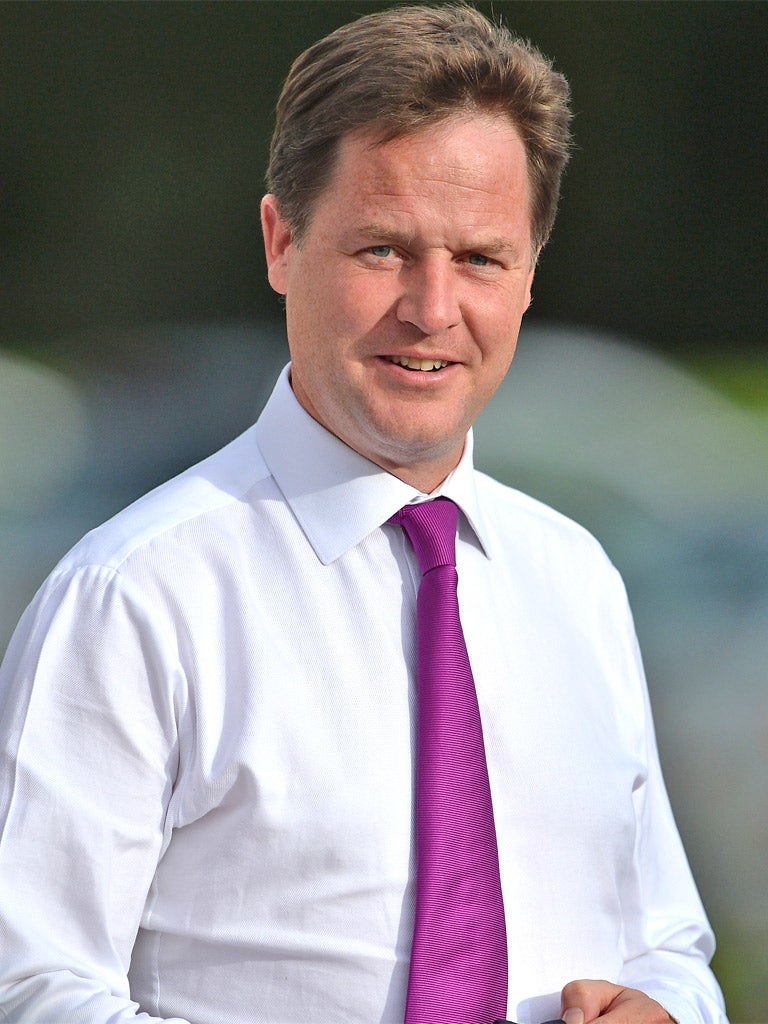
Your support helps us to tell the story
From reproductive rights to climate change to Big Tech, The Independent is on the ground when the story is developing. Whether it's investigating the financials of Elon Musk's pro-Trump PAC or producing our latest documentary, 'The A Word', which shines a light on the American women fighting for reproductive rights, we know how important it is to parse out the facts from the messaging.
At such a critical moment in US history, we need reporters on the ground. Your donation allows us to keep sending journalists to speak to both sides of the story.
The Independent is trusted by Americans across the entire political spectrum. And unlike many other quality news outlets, we choose not to lock Americans out of our reporting and analysis with paywalls. We believe quality journalism should be available to everyone, paid for by those who can afford it.
Your support makes all the difference.Almost half the population think that politicians "don't get" the financial pressures facing ordinary people, says a study.
The stark finding emerged as George Osborne, the Chancellor, dismissed a call by Nick Clegg for the Government to bring in a temporary "wealth tax" on the rich to ensure the burden of a new round of spending cuts does not fall on the poor.
The Resolution Foundation think tank found that 43 per cent of adults agree that "most politicians" do not understand the financial pressures facing people like them. The figure is highest (50 per cent) among those on low and middle incomes, the so-called "squeezed middle" earning between £12,000 and £48,000 a year – a key electoral group including millions of floating voters. The view is also shared by 49 per cent of people on lower incomes and 48 per cent of those on higher incomes. It is highest (53 per cent) amongst people between the ages of 45 and 54.
A survey of 1,900 adults by Ipsos Mori for the think tank also found that 36 per cent feel "financially squeezed"; 27 per cent expect their financial position to get worse in the next year; 25 per cent plan to cut back their spending in that period and less than half (42 per cent) feel secure in their job.
Gavin Kelly, the foundation's chief executive, said: "As long as living standards continue to decline, and until ideas for relieving financial pressures are on offer, the public will carry on feeling that politicians just don't get it. Nick Clegg is clearly trying to react to this mood with his pre-conference season call for a tax on the wealthy to reduce the burden on lower-income groups. As we move closer to the next election the electorate will expect a shift from empathy and floated ideas to carefully crafted policy proposals – which is going to be a real test for all the parties when money is so tight."
He added: "We are currently bumping along the bottom in terms of how families feel about their financial prospects for the year ahead and levels of job security – which is hardly surprising given that the spending power of households continues to fall."
Labour accused Mr Clegg of posturing ahead of next month's Liberal Democrat conference and displaying double standards after allowing Mr Osborne to cut the top rate of income tax from 50 to 45 per cent from next April. Allies admitted the Deputy Prime Minister, left, was not outlining government policy but said the Liberal Democrats would press for a four-year "wealth tax" in negotiations with the Conservatives on a new spending programme.
Join our commenting forum
Join thought-provoking conversations, follow other Independent readers and see their replies
Comments